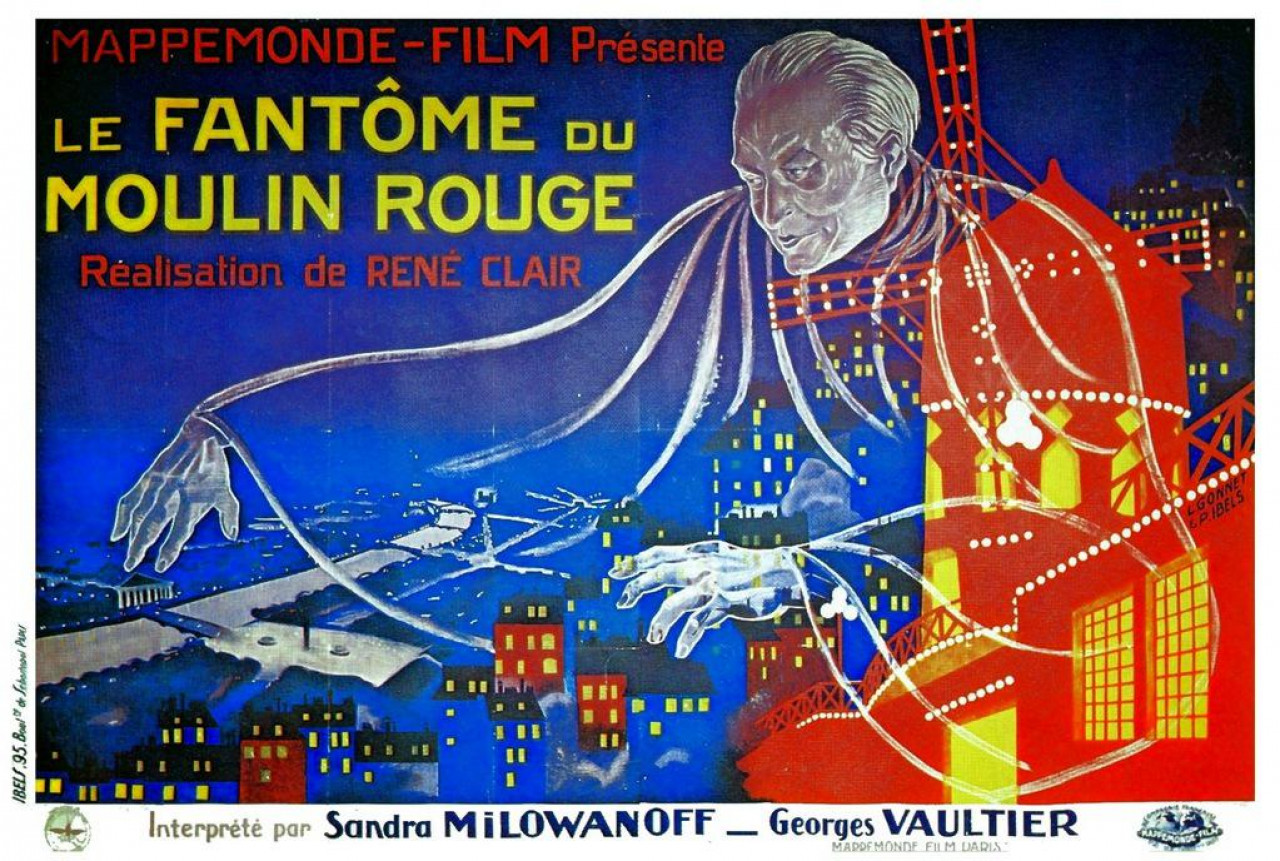The Phantom of the Moulin-Rouge

Julien Boissel, a talented young entrepreneur, must cancel his wedding with Yvonne, because her father has promised her to another in compensation for a fraudulent deal. The desperate young man meets Dr Renault at the Moulin Rouge, who invites him to a magnetizing session. Julien leaves his body, and his soul flies off, free to roam over Paris to commit all sorts of mischief. And that's just the beginning...
It's more than time to repair an injustice about René Clair, who suffered violently from the rise of the Nouvelle Vague, who made him it's favorite target, casting him as the symbol of old school cinema, to be destroyed to clear the space for the future generation. What a sad misunderstanding for this filmmaker at the crossroads of the ancient and the modern, who followed only his own path. René Clair (1898-1981), or René-Lucien Chomette by his real name was born practically at the same time as cinema and his first steps in the Seventh Art already show a formal research between experimentation and a taste for the imaginary: directed with Man Ray and Marcel Duchamp, Entr'acte is a sort of Dadaist revolution. At 26 years old, he follows in the fantasy vein with The Phantom of the Moulin Rouge. If the supernatural theme recalls Théophile Gautier's Avatar, the plot's unwinding pays tribute to the fashion of serials like Feuillade's, who died that year. Moreover, the title is a nod to Gaston Leroux, by maliciously replacing Opera with Moulin Rouge. Unjustly forgotten, this marvel nonetheless exploits cinema's most magical dimensions, in an era when it was constantly inventing itself. With it's superimposed images, it's magician's tricks inherited from Melies, this phantasmagoria is also the filmmaker's first ghost movie, as he will explore the theme again later, notably during his English period with The Ghost Goes West. We often regret the absence of fantasy films in French cinema, but René Clair, along with George Franju is one of those who best illustrated it in its more poetic and dreamlike aspects. One leg in dreams, the other in social issues. A communist, René Clair doesn't hesitate to scoff at the happy few, but gently, because his fantasy is malicious, still far from the tragedy brewing behind the apparent levity of The Grand Maneuver. This dazzling film, made by an idealist who believed in cinema's absolute candor, ironic but never cynical, a discreet pioneer who had to deal with the arrival of sound before remaining silent in front of the jeering new generation. And yet, who today could contradict the man who worried about the "standardisation" of production and who declared: "If cinema must only be a profit making machine, it will always have to sink further into the vulgar."?
Le fantôme du Moulin Rouge.
New print1925
Black and white - 104mn - Mute
France.
Drama, Fantasy.
-
19 September 2021 17:15
Showroom 500
Buy tickets
Presented and accompagnied on piano by Serge Bromberg
Screening in partnership with Lobster Films
Production: René Fernand.
Screenplay: René Clair.
Editing: René Clair.
Photography: Jimmy Berliet, Louis Chaix.
With: Georges Vaultier, José Davert, Sandra Milovanoff, Albert Préjean, Madeleine Rodrigue, Maurice Schutze.
Serge Bromberg
In 1983 the French Cinematheque saved the only surviving copy of The Phantom of the Moulin Rouge, a condensed version with half of the film missing. The movie seemed lost forever, when a British copy printed from the "export" negative (of a lesser quality) was identified at the British Film Institute in London. The story-line and the characters' names had been changed... It wasn't really René Clair's film anymore. From these two elements and with the support of both institutions, Lobster Films, (also helped by the Centre National du Cinéma) made a first 4K digital copy, and then a complete restoration, attempting to stay as close as possible to the film's original version. Here it is, and this film that was once considered a minor work, now reappears in its original freshness and energy. The Phantom is truly a great René Clair film, full of fantasy, poetry and imagination. The recreation of the original hues, along with the "live" piano performance make this projection, one of the first presentations of the restored version in the world, a major and very "étrange" event.








